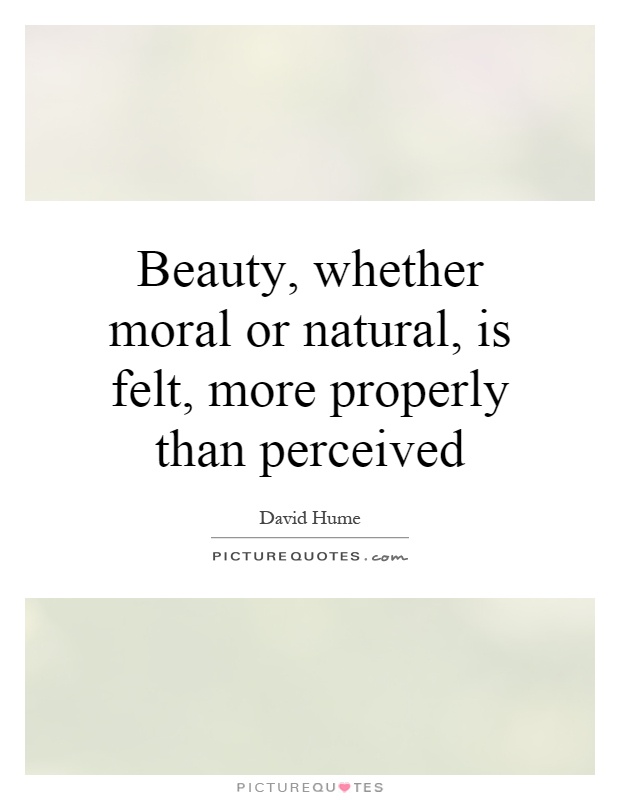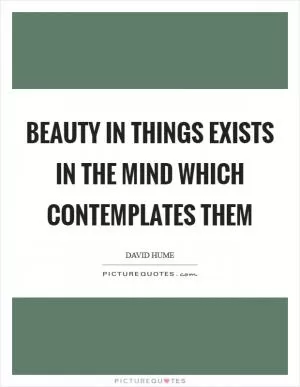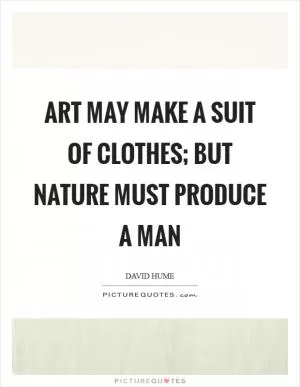Beauty, whether moral or natural, is felt, more properly than perceived

Beauty, whether moral or natural, is felt, more properly than perceived
David Hume, a prominent figure in the Scottish Enlightenment, was a philosopher known for his empiricist approach to understanding human nature and the world around us. In his works, Hume often explored the nature of beauty and its perception by individuals. One of his famous quotes, “Beauty, whether moral or natural, is felt, more properly than perceived,” encapsulates his belief that beauty is not simply something that can be objectively observed or measured, but rather something that is experienced on a deeper, more emotional level.Hume’s distinction between feeling and perception is crucial in understanding his perspective on beauty. While perception involves the use of our senses to observe and analyze the world around us, feeling is a more subjective and personal experience that involves our emotions and inner thoughts. According to Hume, beauty is not something that can be fully understood through rational analysis or logical reasoning. Instead, it is something that is felt on a deeper, more intuitive level.
Hume believed that beauty, whether in the form of natural landscapes or moral virtues, has the power to evoke strong emotions and feelings in individuals. For example, when we look at a beautiful sunset or a majestic mountain range, we are not simply perceiving these sights with our eyes, but we are also experiencing a sense of awe, wonder, and admiration. Similarly, when we witness acts of kindness, compassion, or courage, we are not just recognizing these virtues intellectually, but we are also feeling a sense of warmth, gratitude, and respect.












 Friendship Quotes
Friendship Quotes Love Quotes
Love Quotes Life Quotes
Life Quotes Funny Quotes
Funny Quotes Motivational Quotes
Motivational Quotes Inspirational Quotes
Inspirational Quotes